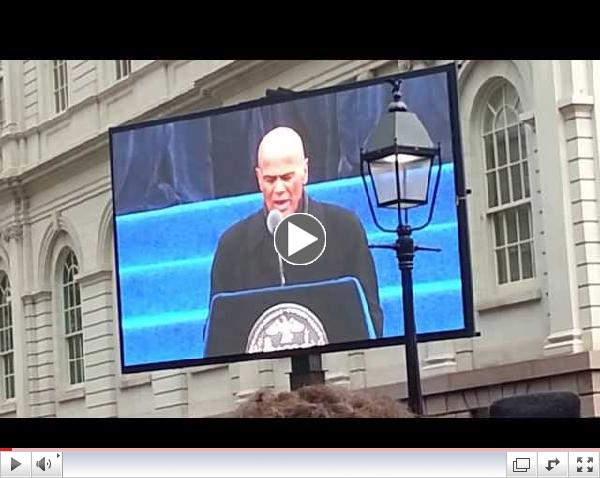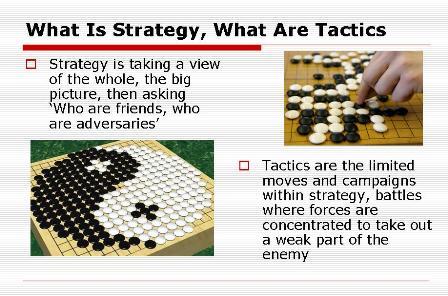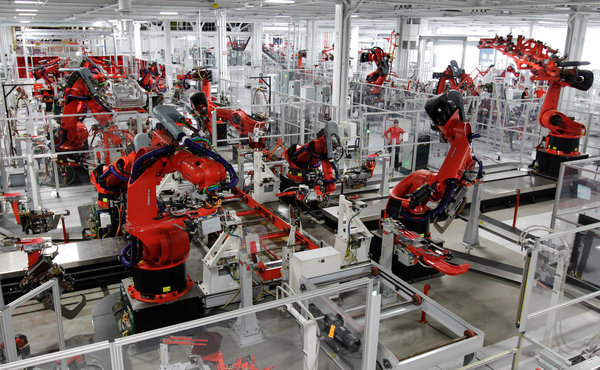 | | Harry Belafonte opening speech at Bill De Blasio Inauguration Jan 1, 2014 |
|

Jackson Rising:
New Economies Conference
|
 | |
Journal of the Black Left Unity Network
|
|

New CCDS Book Reporting on Vietnam
|
 The new annual edition of our journal of discussion and analysis is now out. More than 130 pages, it includes 20 articles on organizing, racism and the right. Cost is $10 plus shipping. Or get one by becoming a sustainer. Click the title to buy it directly. The new annual edition of our journal of discussion and analysis is now out. More than 130 pages, it includes 20 articles on organizing, racism and the right. Cost is $10 plus shipping. Or get one by becoming a sustainer. Click the title to buy it directly.
|
Blog of the Week... 
|
|
Radical Jesus:
A Graphic History of Faith  By Paul BuhleHerald Press By Paul BuhleHerald Press
|

Check out what CCDS has been doing...
|
 Keep On Keepin' On Keep On Keepin' OnWhy Socialists Run in Elections, Strategy and Tactics Slide Slow, Class and Privilege, the Green New Deal ...and other Short Posts on Tumblr by Carl Davidson
|

Edited by Carl Davidson Revolutionary Youth the the New Working Class: The Praxis Papers, the Port Authority Statement, the RYM Documents and other Lost Writings of SDS
Changemaker, 273pp, $22.50
For the full contents, click the link and view 'Preview' under the cover graphic.
|
|
By Randy Shannon, CCDS

"Everyone has the right to work, to free of employment, to just and favorable conditions of work and to protection against unemployment."
- United Nations Universal Declaration of Human Rights, December 10, 1948
I. Introduction
The "Great Recession" that began in 2007 has caused the greatest percent of job losses since the Great Depression of 1929. This crisis is the end of an era of unrestrained 'neo-liberal' capitalism that became public policy during the Reagan administration. The crisis marks a new level of instability with the growth of a global financial elite that targeted US workers and our trade unions after World War II.
|
|
Order Our
Full Employment Booklets
 |
...In a new and updated 2nd Edition
Capitalism may well collapse under its own excesses, but what would one propose to replace it? Margaret Thatcher's mantra was TINA...There Is No Alternative. David Schweickart's vision of "Economic Democracy" proposes a serious alternative. Even more fundamentally, it opens the door to thinking about alternatives. His may or may not turn out to be the definitive "successor system," but he is a leader in breaking out of the box. |
We Are Not What We Seem:
Black Nationalism and Class Struggle in the American Century
By Rod Bush, NYU Press, 1999
|
 by Paul KrehbielAutumn Leaf Press, $25.64
by Paul KrehbielAutumn Leaf Press, $25.64 | | Shades of Justice Video: Bringing Down a President, Ending a War |
|
 By Giuseppe Fiori
Verso, 30 pages
|

Essays on Mondragon, Marx, Gramsci
and the Green and Solidarity Economies |
Solidarity Economy:What It's All About

Edited by Jenna Allard, Carl Davidson and Julie Matthaei
Buy it here...
|

- Foreword by Susan Brownmiller
- Preface by Ken Wachsberger
$37.50 + $6 shipping
|
|
Discussion Documents for a Militant Movement

By Don Hamerquist
|
|
|
|
An Invitation to CCDSers and Friends...
 Public Demands: Public Demands:
More Class War
From Us, Please!
We're the Committees of Correspondence for Democracy and Socialism...Do you have friends who should see this? Pass it on...Do you have a blog of your own? Others you love to read every day? Well, this is a place where you can share access to them with the rest of your comrades. Just pick your greatest hits for the week and send them to us at carld717@gmail.com!
Most of all, it's urgent that you oppose war on Iran, defend voter rights, plan for 2014 races now, oppose austerity, support the 'Moral Mondays' in North Carolina, the Congressional Progressive Caucus' 'Back to Work Budget'! We're doing more than ever, and have big plans. So pay your dues, make a donation and become a sustainer. Do it Now! Check the link at the bottom... |
Stand Up for Those Without Work:
In Memory of Dr. King

By Carl Bloice
Black Commmentator
The December unemployment statistics have come and been pondered. The jobless rate declined from 7.0 percent to 6.7 percent over the month, the lowest it's been since President Obama took office.
Some commentators took that to indicate significant progress and the White House eagerly touted the figures. However, most economists agreed that the decrease in the official percentage rate is mostly due to the fact that the number of people actually working and actively looking for work continues to shrink.
While 74,000 new jobs came on line in December a smaller percentage of workers over 16 years old have jobs than at any time in the last 30 years.
The unemployment rate for African American workers fell from 12.5 percent in November to 11.9 percent in December. Some media observers chalked this decease up to progress in the jobs picture for the black community. The real picture taken from the Labor Department report is quite different and alarming.
The percentage decline in the jobless rate is "almost entirely due to people leaving the labor force as the number of people reported employed in December only rose by 143,000, just enough to keep the employment-to-population ratio constant," observed Dean Baker, co-director of the Center for Economic and Policy Research. "Blacks disproportionately left the labor market, with the labor force participation rate for African Americans dropping by 0.3 percentage points to 60.2 percent, the lowest rate since December of 1977. The rate for African American men fell 0.7 pp to 65.6 percent, the lowest on record."
The jobless rate for young African Americans (16-19 years old) was 38.2 at the beginning of last year and fluctuated up and down a few points over the following months. It dipped from 35.7percent in November to 35.5 percent in December.
"Each month, the official unemployment rate provides the share of the labor force unemployed in that month," wrote Heidi Shierholz of the Economic Policy Institute. "But this understates the number of people who are unemployed at some point over a longer period, since someone who is employed in one month may become unemployed the next, and vice versa. Therefore, the official annual unemployment rate - which is actually the average monthly unemployment rate for the year - is much lower than the share of the workforce that experienced unemployment at some point during the year. The average monthly unemployment rate in 2013 was 7.4 percent, but we estimate that 12.7 percent of the workforce, or more than one out of every eight workers, was unemployed at some point in 2013." ...(Click title for more)
|
|
By Matthew Yglesias
Slate
Some interesting new polling from USA Today and Pew on income inequality finds that the American public broadly endorses class warfare:

The danger for liberals to keep in mind is that voters are less persuaded that the government can do something useful to reduce inequality than they are that the government should do something useful.
People are accustomed to the idea of a mass public that's "ideologically conservative and operationally liberal"; in other words one that hates "big government" but loves programs such as Medicare and Social Security. On inequality you could see the reverse happen, where people favor bold action to tackle inequality but are skeptical that specific programmatic ideas are workable or will be implemented correctly.
But on a broad thematic level, people definitely seem ready to spread the wealth around and I agree.
Matthew Yglesias is Slate's business and economics correspondent. He is the author of The Rent Is Too Damn High. ...(Click title for more)
|
|
But Can It Take Down the Mayor?
 Marilena Marchetti looks at the issues at stake as the Chicago Teachers Union proclaims its intention to make an impact for education justice in electoral politics. From SocialistWorker.org Marilena Marchetti looks at the issues at stake as the Chicago Teachers Union proclaims its intention to make an impact for education justice in electoral politics. From SocialistWorker.org
Jan 14, 2014 - THE CHICAGO Teachers Union's House of Delegates demonstrated at its first meeting of the year that the union wants to shake up the city and state political establishment.
In a sweeping majority vote, representatives of the union's 23,000 members passed a resolution to launch an Independent Political Organization (IPO). The goal of the initiative is to unite progressive groups, nonprofit organizations and unions around political campaigns that have the potential to sustain social movements and activism, rather than empowering Democratic Party candidates who have turned their back on teachers and public education.
The resolution concludes:
RESOLVED that the Chicago Teachers Union, along with key allies in the progressive labor movement and amongst progressive community organizations will launch an independent political organization (IPO) that is capable of leading strong electoral and legislative campaigns to benefit working families, our active and retired members, and our communities, and be it further
RESOLVED that the IPO will enable a broad multitude of diverse organizations to establish a pipeline for candidate development to identify and train people who are part of our movements to become elected officials; and that such people are dedicated to our shared vision, will fully support campaigns that advocate for our needs, and will be held accountable to the people who helped put them in office, and be it finally
RESOLVED that the IPO will engage in year-round community outreach and campaign to build public support for our platform and political objectives, not just during the election season; and the IPO's goal is to develop, elect and support candidates to be advocates for those objectives, not just to become members of elective office.
The commitment to create an IPO is indicative of the gut-level feeling among teachers and others who want to see social justice that "politics as usual"--in a state dominated by the Democrats at every level--won't bring about the kind of change so clearly needed in our society, where access to jobs, housing, health care and education for ordinary people is going down the tubes while corporate profits shoot through the roof.
The initiative taken by the CTU can, with the support of its allies, have significant implications for how social justice movements in Chicago can channel their energies around electoral politics.
Whether the IPO will be a space that can cultivate truly independent candidates like Kshama Sawant--the Socialist Alternative candidate who won a seat on the Seattle City Council last November--remains to be seen. For certain, her campaign and the radical left proposals it put forward are the kind that the IPO would potentially support....(Click title for more)
|
Embattled Public Schools Fight Privatization 
Jessie Ramey speaks to a crowd on the National Day of Action to Reclaim the Promise of Public Education on Dec. 9, 2013.
By Theo Anderson
In These Times
Jan 22, 2014 - Critics argue that TFA's untested teachers and the rapid turnover are unfair to students, and that the program is a stopgap, at best, for the problem of chronically underfunded and understaffed public schools.
Advocates for public education scored a major victory in December, when the newly constituted Pittsburgh Board of Education rejected a three-year, $750,000 contract between Teach for America (TFA) and Pittsburgh Public Schools. TFA assigns recent college graduates to teaching positions in public schools, often urban schools that are considered failing. Critics believe the program does a disservice to children and undermines the foundations of public education.
The victory is part of a broad and bitter struggle that has escalated dramatically in Pennsylvania since Tom Corbett was elected the state's governor in 2010. A Republican in the Tea Party mold, Corbett made "education reform"-code for defunding public schools and shifting students to charter and private schools-central to his campaign. Once elected, he pushed through a 2011 budget with an estimated $1 billion in cuts to funding for the state's public schools. The advocacy group Pennsylvania School Funding Campaign described the cuts as "an outrageous assault on children, families and Pennsylvania's economic future." One thing that both sides can agree on is the dire condition of Philadelphia's public schools, which are "facing end times," as Salon's Aaron Kase recently wrote, noting that some are doing without "counselors, administrative staff, noon aides, nurses, librarians or even pens and paper."
If budget cuts have created a sense of doom in Philadelphia, the story is playing out much differently in Pittsburgh. There, just as in Philadelphia, the cuts have done serious damage, but they have also inspired a remarkably vibrant grassroots movement on behalf of public schools....(Click title for more)
|
One Key for Socialism's Getting to
a Classless Society: Full Cybernation

China's Future Workforce & Robotics Development By Eugene Clark
SolidarityEconomy.net via China.org.cn
Jan 11, 2014 - China will depend upon advances in technology, especially in the field of robotics, to maintain its competitive economic edge, especially as its population ages and the size of its workforce declines.
The growth of robotics is also likely to bring about major societal changes, including reshaping the world of work, not only in manufacturing but in service sectors including education and health care. According to the International Federation of Robotics, China's demand for robots will increase from 26,000 to 35,000 through 2015, and is likely to increase dramatically thereafter.
If China is to achieve its goals in relation to robotics, then solutions must be not just technical. In addition, there are at least three other major challenges that must be overcome. The first is the need to achieve clarity and certainty with regard to the legal and ethical issues involved. For example, driverless cars are already available and have been legislated in several American states. However, ethical standards, product liability, agency, safety standards, insurance and other legal issues will need to be resolved so that people developing this industry will have enough certainty to risk the substantial investment required.
Among the legal issues that must be resolved are:
* Legal definition of "robot." The law will have to have a clear definition of what exactly is meant by "robot?" Just as cyber law had to depend upon extending traditional metaphors and analogies to contexts involving the Internet, so too appropriate legal metaphors must emerge which will allow government, courts and others to design the appropriate legal infrastructure that will provide the necessary guidance for this new industry to evolve.
* Balance. The law is about conflict and the need to balance competing interests. The design of legal rules that govern robotics will need to achieve the appropriate balance between encouraging innovation through robotics and related technologies and ensuring public safety, particularly in the context of autonomous robots.
* Agency issues. The law of agency is especially relevant to robotics and covers the legal principles governing the liability when one person acts on behalf of another. An example is a software-only system such as automated trading agents which have caused serious "flash crashes" in share markets in the United States....(Click title for more)
|

China stands for 5 principles in a political settlement of the Syrian issue
By Wang Yi
Beaver county Peace Links via China.org.cn
Jan 21, 2014
First, the issue of Syria must be resolved through political means.
China welcomes and supports the convocation of Geneva II on 22 January 2014. This will be an important opportunity to promote the political settlement of the Syrian issue. China calls on all parties in Syria to actively participate in Geneva II.
Military action is no answer to the issue of Syria. All parties should voice their demands through dialogue and negotiation rather than seeking gains through armed conflict. We call on all parties in Syria to seize the opportunity presented by Geneva II, commit themselves to the full, balanced and effective implementation of the Geneva Communiqué, and support and work closely with the UN Secretary-General and the Joint Special Representative of the United Nations and the League of Arab States for Syria in their mediation efforts.
The meeting in Geneva, marking the beginning of dialogue and negotiation, should be an ongoing process. Thus, a clearly defined follow-up mechanism is needed to keep the dialogue, negotiation and other political efforts going. It is essential that negotiation is not just launched, but more importantly pushed forward until practical results are achieved. The meeting in Geneva should be an open platform and the door of peace talks should be open to all parties in Syria committed to a political settlement so that they will take an active part in the process and play their role.
While dialogue and negotiation are going on, all parties in Syria must put an end to all armed conflict and violence, taking credible and visible actions such as humanitarian pause, ceasefire region by region or phase by phase, and disengagement as first steps to build and enhance mutual trust. The international community should provide assistance within the UN framework to support and monitor the ceasefire.
Second, the future of Syria must be decided by its own people.
To resolve the issue of Syria, efforts must be made at the domestic, regional and international levels. The political transition process in Syria must be Syrian-led, and the future of Syria, ultimately, can only be decided by the Syrian people themselves.
The international community must uphold the UN Charter and the basic norms governing international relations, be committed to maintaining Syria's sovereignty, independence, unity and territorial integrity and respect the will and choice of the Syrian people. The international community needs to take a just, balanced and impartial approach in dealing with all parties in Syria, create favorable conditions and a necessary environment for the formulation of a political transition plan and avoid external imposition of political solutions on Syria. It is necessary to uphold and give play to the role of the United Nations as the main channel of mediation.
China values and supports the positive role played by regional countries in seeking a political settlement of the Syrian issue. ...(Click title for more)
|
By Geoff Berkshire
Variety
 Jan 19 - Discovery stakes a claim on scripted programming with the epic miniseries "Klondike," and if the lavish production doesn't quite strike gold, it comes close enough to encourage further exploration. Jan 19 - Discovery stakes a claim on scripted programming with the epic miniseries "Klondike," and if the lavish production doesn't quite strike gold, it comes close enough to encourage further exploration.
Boasting a first-rate cast, an increasingly engrossing narrative and frequently awe-inspiring visuals, the six-hour saga transports viewers back to the tail end of 19th-century life with a requisite dose of contemporary edge. Given current trends in cable event programming, Discovery could be looking at a ratings bonanza - provided audiences aren't so fed up with cold weather that watching characters that risk freezing to death to find their fortune is an instant turn-off.
If anything, the recent polar vortex headlines should give viewers a deeper connection to the bone-chilling conditions faced by adventurous pals Bill Haskell (Richard Madden, recovering nicely from the "Game of Thrones" Red Wedding) and Byron Epstein (Augustus Prew) as they head out in search of gold in the Yukon wilderness circa 1897. The mini's first hour details their harrowing trek, opening in the midst of a perilous avalanche and flashing back to swiftly explain how recent college grad Bill and street-smart Byron went from New York to Colorado Springs to Southern Alaska and beyond.
After facing down both raging rapids and hungry wolves in sequences that play like adrenalized versions of classic Discovery docus, the guys finally settle in Dawson City, a lawless town that serves as home base for countless prospectors, outcasts and shady characters. That's where the cast expands to include the colorful likes of Sam Shepard as plainspoken do-gooder Father Judge, on a mission to bring religion and morality to the area; and Tim Roth as the Count, a purported English aristocrat attempting to disguise his desperation with an air of wealth and class.
Even more important, especially for Bill, is Dawson's most beguiling resident: beautiful businesswoman Belinda Mulrooney (Abbie Cornish), who wields the kind of financial savvy and power the Count only pretends to hold. Immediately drawn to Bill's innocent nature but holding herself at a distance, Belinda begins as an enigma but develops into the story's richest and most surprising character, and Cornish is spectacular in the role....(Click title for more)
|
|
 Kim Stanley Robinson Kim Stanley Robinson
and the Mars Trilogy
By Tim Kreider
The New Yorker
Sometime in the past couple of generations, capitalism's victory over our hearts and minds seems to have become complete, in that hardly anyone even notices it anymore.
It's a monoculture, taken for granted, like monogamy, or monotheism, or having one sun. It's hard to think of any "serious" literary writers in the United States under the age of fifty who engage the big political issues of our time as directly as Boomer authors like Paul Auster ("Leviathan"), Thomas Pynchon ("Vineland"), or Robert Stone ("A Flag for Sunrise"), let alone in the way that muckraker novelists like Upton Sinclair used to.1 When we call literary writers "political" today, we're usually talking about identity politics. If historians or critics fifty years from now were to read most of our contemporary literary fiction, they might well infer that our main societal problems were issues with our parents, bad relationships, and death. If they were looking for any indication that we were even dimly aware of the burgeoning global conflict between democracy and capitalism, or of the abyssal catastrophe our civilization was just beginning to spill over the brink of, they might need to turn to books that have that embarrassing little Saturn-and-spaceship sticker on the spine. That is, to science fiction.2
Science fiction is an inherently political genre, in that any future or alternate history it imagines is a wish about How Things Should Be (even if it's reflected darkly in a warning about how they might turn out). And How Things Should Be is the central question and struggle of politics. It is also, I'd argue, an inherently liberal genre (its many conservative practitioners notwithstanding), in that it sees the status quo as contingent, a historical accident, whereas conservatism holds it to be inevitable, natural, and therefore just. The meta-premise of all science fiction is that nothing can be taken for granted. That it's still anybody's ballgame.
Kim Stanley Robinson is generally acknowledged as one of the greatest living science-fiction writers; collectively, the three novels of his "Mars" trilogy-"Red Mars," "Green Mars," and "Blue Mars"-have won all the major science-fiction and fantasy awards. He is also, for my money, one of the most important political writers working in America today. In his Mars novels, Robinson uses the Red Planet as a historical tabula rasa, a template for creating a saner, more sustainable, and more just human society. What's most powerful about the Mars books as political novels is that they envision a credible utopia, one that doesn't-unlike, say, Skinner's "Walden Two"-rely on a revision of human nature. Robinson's characters are cynics, opportunists, idealists, narcissists, drug-dependent, manic-depressive, borderline Asperger's, and emotionally frozen survivors of abuse, but with all their flaws and conflicting agendas they manage to remake their world in more humane and equitable form.
The first wave of his Martian settlers are all scientists, who are no more perfect than any other human beings but have been rigorously trained in a kind of intellectual integrity. Robinson argues that, now that climate change has become a matter of life and death for the species, it's time for scientists to abandon their scrupulous neutrality and enter into the messy arena of politics. Essentially, Robinson attempts to apply scientific thinking to politics, approaching it less like pure physics, in which one infallible equation / ideology explains and answers everything, than like engineering-a process of what F.D.R. once called "bold, persistent experimentation," finding out what works and combining successful elements to synthesize something new. He scavenges ideas from the American Constitution, the Swiss confederacy, "the guild socialism of Great Britain, Yugoslavian worker management, Mondragon ownership, Kerala land tenure, and so on" to construct his utopias. The major platform planks these methods lead him to in his books are:
--common stewardship-not ownership-of the land, water, and air an economic system based on ecological reality
--divesting central governments of most of their power and diffusing it among local communities
--the basics of existence, like health care, removed from the cruelties of the free market
--the application of democratic principles like self-determination and equality in the workplace-which, in practice, means small co-ops instead of vast, hierarchical, exploitative corporations-and,
--a reverence for the natural world codified into law.
Depending on your own politics, this may sound like millennia-overdue common sense or a bong-fuelled 3 A.M. wish list, but there's no arguing that to implement it in the real world circa 2013 would be, literally, revolutionary. My own bet would be that either your grandchildren are going to be living by some of these precepts, or else they won't be living at all. ...(Click title for more)
|
Start 2014 With a Red Resolution...
Become a CCDS member today!
 The time is long past for 'Lone Rangers'. Being a socialist by your self is no fun and doesn't help much. Join CCDS today--$36 regular, $48 household and $18 youth. The time is long past for 'Lone Rangers'. Being a socialist by your self is no fun and doesn't help much. Join CCDS today--$36 regular, $48 household and $18 youth.
Better yet, beome a sustainer at $20 per month, and we'll send you a copy of Jack O'Dell's new book, 'Climbing Jacobs Ladder,' drawing on the lessons of the movement in the South in the 1950s and 1960s.
Solidarity, Carl Davidson, CCDS
|
|
|